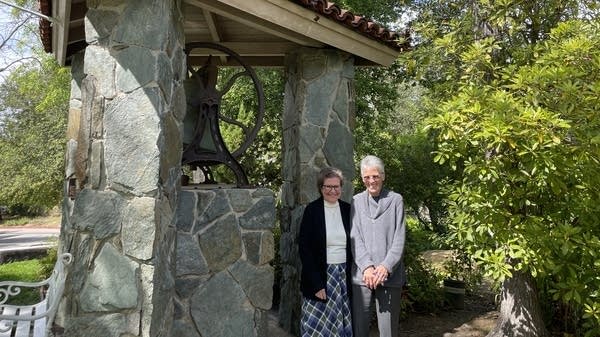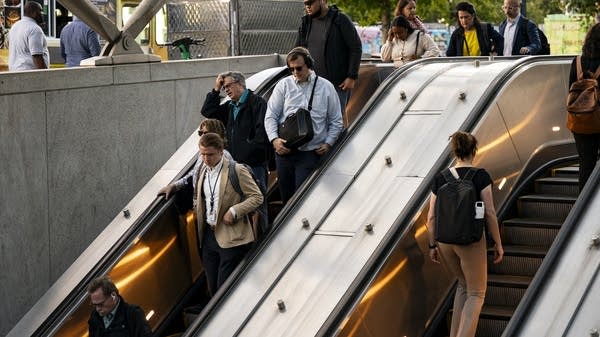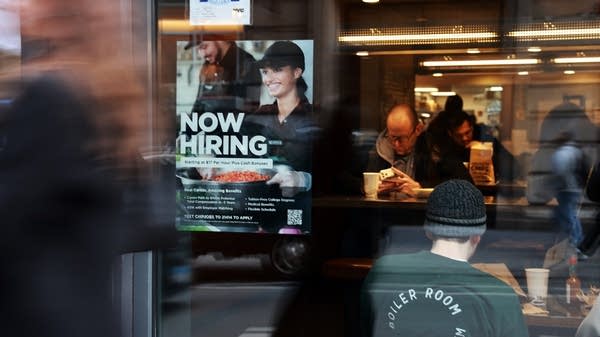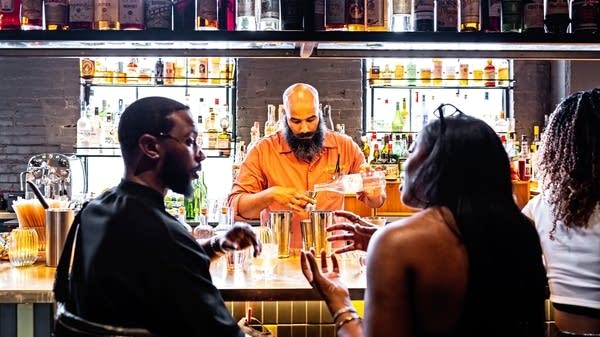Catholic sisters take a vow of poverty. As they age, affording care is tricky
The steady stream of young women joining religious orders stopped decades ago. That means the sisters who remain have little income and fewer peers to lean on for care.

Decades ago, the Holy Spirit Retreat Center in Los Angeles housed novices hoping to become Catholic sisters. The young women who lived here kept aging, younger women stopped joining, and part of the property got remodeled as an assisted living facility. Now its rooms are filled with gray-haired women and hospital beds.
“Everything has grab bars, all the doors are wide enough for wheelchairs and the showers are wheelchair accessible,” said Sister Maribeth Larkin. She is the general director for the order that runs this place, the Sisters of Social Service.
Since sisters don’t typically have kids or spouses to lean on, they’ve leaned on younger sisters instead, the way you’d lean on a niece to help you climb the stairs or go to the bathroom. She said that made health care less expensive.
“We didn’t have 24/7 care and a nurse on staff,” she said.
But that model doesn’t work anymore, and now there is a nurse on staff. The population of nuns and sisters peaked 60 years ago. Since then it’s declined by 78%. The remaining population has aged significantly, and the kind of financial support they get varies from order to order.
The United States has systems in place that can help older Americans out, including Medicare and Social Security. But Social Security payments are based on how much recipients made when they were working. And sisters don’t get paid like everyone else.
“Some of the sisters’ compensation is often in kind, so it will be free housing or the use of a car, things like that, which don't get counted as income,” said Susan Raymond, senior advisor for the Anna Trust Foundation, which funds elder care for Catholic sisters. “So when it comes to Social Security calculations, the base salary of sisters is often very, very low.”
Raymond said the financial challenges the sisters face is a growing problem for the rest of the country, too, as fewer young people are paying into Social Security, while the population that gets benefits is growing. Four out of five people over the age of 60 in this country are financially insecure, according to the National Council on Aging.
There isn’t a sure-fire solution. The Sisters of Social Service rent out part of their property as a retreat center. They’re also applying for grants and asking local churches for help. Another order — one that anthropologist Anna I. Corwin studies — has sold some of its property and moved in with another religious group. But she said there is one thing they all have in common:
“Their commitment to essentially mutual aid is the key,” said Corwin. Those decisions that they're making together are more informed, and better, and wiser, and more calm than what they could do if they were each individuals.
That actually makes them healthier. While the World Health Organization declared loneliness a global health concern in 2023, sisters typically live in group settings.
And it’s working.
Corwin said the data is clear: Sisters live longer than the average person.
“They're not just living longer. They're like working until they're in their 80s and 90s. These are hardy women,” she said.
She gives two reasons for that. One is they’re a really pragmatic bunch.
“They're doing what they need to do, but they're also doing all this acceptance work. Like, ‘Okay, so my body is declining. How do I live with that?’ And that makes a huge difference in well-being, both psychologically and physiologically,” she said.
And two: Their optimism is unshakable.
“The God who led us this far is not going to abandon us now,” said Sister Judith Dieterle. She is one of the youngest members of the Sisters of St. Louis. She’s in her mid-70s.
“There's, I think, that deep sense of faith and that deep sense of trust in the vocation that we have that says we'll get through this,” she said. “I never anticipated when I entered that I would be one of the young ones, still at my age. But the fact is, that's the way it is, and so we’ll figure out what’s next.”













